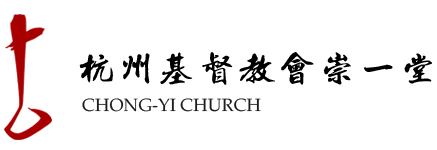每日灵修 | 11.28 替人洗脚的君王
The Footwashing King
音频分享
阅读经文
约翰福音 13:1-17
John 13:1-17

“我是你们的主,你们的夫子,尚且洗你们的脚,你们也当彼此洗脚。”
— 约 13:14
"Now that I, your Lord and Teacher, have washed your feet, you also should wash one another's feet."
— John 13:14
约翰福音十三章告诉我们,耶稣与祂的门徒们在最后一次共进逾越节晚餐时,祂起身为门徒洗脚。洗脚通常是奴隶或仆人的工作。那个年代的人穿着凉鞋,和动物牲畜一起在尘土飞扬的路上行走,肮脏的脚会破坏人吃节日晚饭的胃口。
我在神学院里的其中一位教授,鼓励他的学生留意在这段经文中那些形容耶稣所作的事的动词。透过这些动词,我们可以看见一幅关于耶稣使命和目标的画面。耶稣“离席站起来,脱了衣服,拿一条毛巾束腰”——祂跟着“就洗门徒的脚。”之后,祂“就穿上衣服,又坐下。”
那么,这幅完整的画面在试图说什么?耶稣离开祂在天上的宝座,脱去祂在天上的荣耀,取了像我们的血肉之躯。透过祂的一生、死亡和复活,祂洗净祂的子民的罪。之后,祂升到天上,穿上祂在天上的荣耀,回到祂在天上的宝座和与神同在。
靠着圣灵的能力来效法耶稣的典范,我们也能够在耶稣所赐的主餐中,并在祂呼召我们前往的任何地方,去彼此服侍。

John 13 shows us that during Jesus' final Passover meal with his disciples, he got up and washed their feet. This was ordinarily the job of a slave or a servant. And in that day, people wore sandals and walked along dusty roads with animals. Filthy feet could ruin people's appetites at a holiday meal.
One of my seminary professors encouraged his students to pay attention to the verbs describing Jesus' actions in this passage. In these verbs we get a picture of Jesus' mission and purpose. Jesus "got up from the meal, took off his outer clothing, and wrapped a towel around his waist"—and he proceeded to "wash his disciples' feet." Then, afterward, "he put on his clothes and returned to his place."
What is the bigger picture? Jesus got up from his heavenly throne, took off his heavenly glory, and wrapped himself in our flesh and blood. Through his life, death, and resurrection, he washed away his people's sins. Then he ascended to heaven, put on his heavenly glory, and returned to his place with God on the throne.
Through the power of the Spirit and by following Jesus' example, we too can serve one another at the Jesus-meal and wherever he calls us to go.
祷告 · Prayer
亲爱的君王耶稣,祢为我们的缘故成为奴仆。这段故事的记载使我们谦卑、也激励我们、并赐能力给我们在祢的国度里服侍祢,我们为这个故事中的服侍榜样赞美祢。奉祢的名祈求,阿们。
摘自《每日箴言》
普世佳音出版
